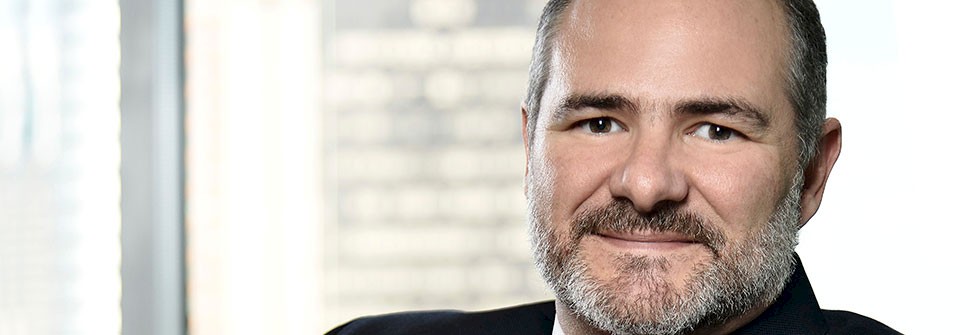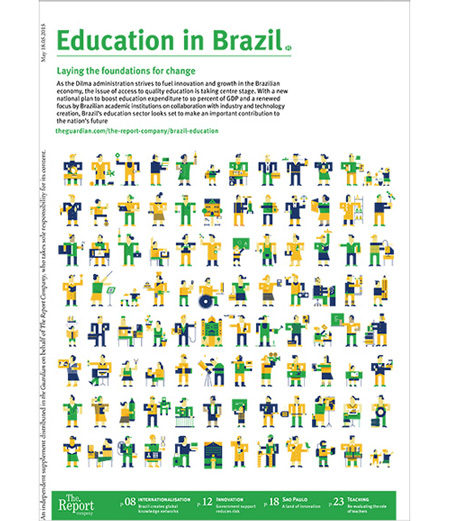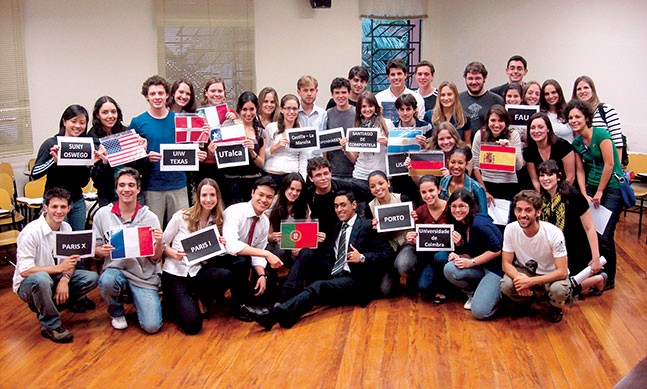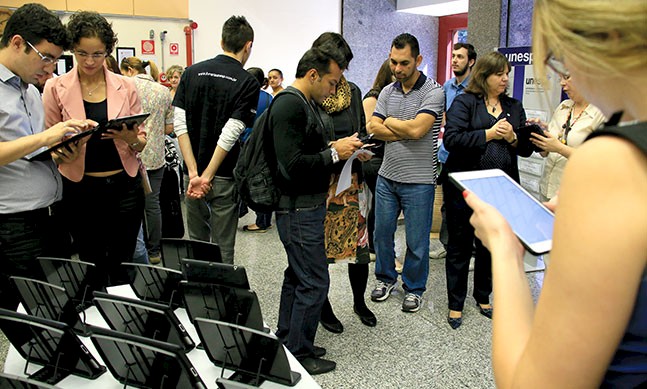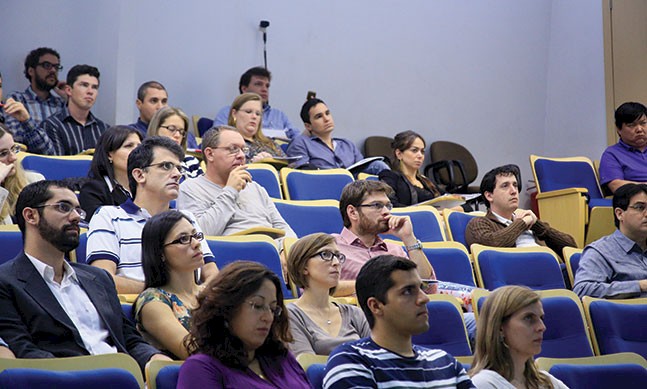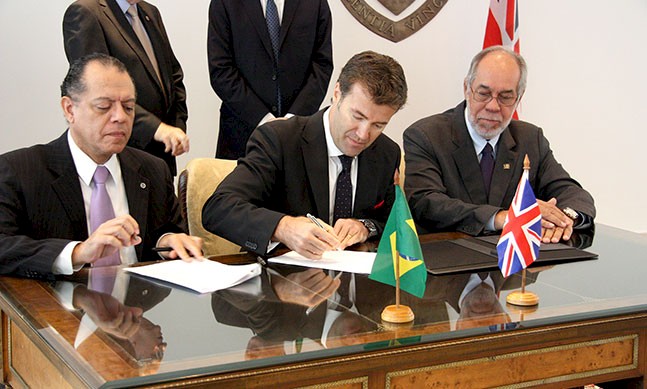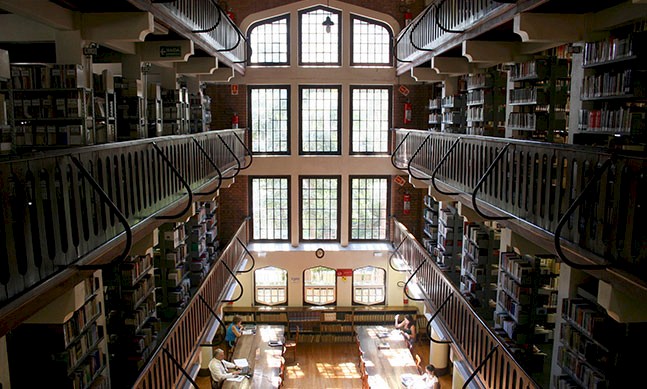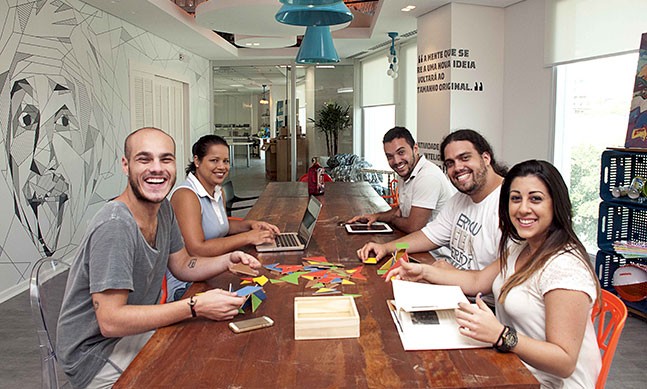Abril Educacao was founded in Sao Paulo in 2010. A market leader in educational publishing, a series of acquisitions over recent years has seen its influence in basic education reach even further, with Anglo Education and Wise Up language school among those now to be found under the Abril banner. Mario Ghio Junior assumed the presidency in 2014 with the intention of continuing the rapid expansion of recent years, making Abril Educacao both highly profitable and instrumental in teaching Brazil’s future generations.
The Report Company: How would you appraise Brazil’s education system today?
Mario Ghio Junior: Ten years ago, Brazil was in an important transition in terms of getting more children into school. Since then, the country has been striving to make schools better. Today, our basic education is poor, but everybody has access to it, so our challenge now is to make these schools better and better.
I think the outlook is very good for us. We have enough schools to satisfy demand, so we can spend money now on improving them on the municipal, state and federal levels. The federal government has been investing in books and training and has created the Education Development Plan (PNE), which has clear goals for the future of the country. We have already been seeing the results of these developments in six-to-eleven year-olds, where the children are above their targets, but the problem is the older students in middle and high school who are not hitting the targets.
TRC: Some in the private sector have suggested that the education system doesn’t need more money, just better management. Would you agree?
MGJ: The debate on whether we should invest more in education is no longer valid since the law now states that we will put more and more money into it until we reach 10 percent of GDP. However, this money is usually poorly used.
In percentage terms, Brazilian teachers earn the same as other countries in Latin America or Asia, but in absolute terms, they earn very little. To compensate, teachers in the public sector often work mornings, afternoons and nights, which makes it impossible for them to prepare classes well and participate in complementary activities. We need to invest more in teachers, school coordinators and directors, because good schools usually have good heads, but any school is only as good as its teachers. Great facilities with bad management and poorly-trained teachers certainly won't work.
TRC: How can Brazil better value its teachers?
MGJ: First of all, the national salary standard needs to be equalised, and training needs to be given continuously, not only for teachers, but also for coordinator and directors. A lot of their training is highly theoretical and Brazil is overly concerned with what degree teachers have. They need more training in classroom practice because students learn from engaged, dedicated, inspiring and happy teacher, but we spend too much time teaching them theories rather than investing in practical training.
Some people say we should federalise everything, but I think municipalisation is in fact much more useful in improving the quality of teaching. The closer the family and the manager are to the community, the better the students' performance. The PISA exams of Scandinavian countries show that the closer teachers, family and managers are better.
TRC: Recent years have seen a lot of mergers and consolidation in the industry. Where does Abril stand in the new landscape?
MGJ: Our group does not depend on federal investments, because basic education is not funded by the federal government, other than for school books. We believe that, if Abril Educacao contributes in a relevant way and at the right age, we will deliver a generation of young people into higher education that not only will be able to perform better there, but will be better professionals afterwards.
We understand that basic education is the foundation of all education, and we want to focus on children and adolescents and provide them an education that is broad in scope. Our program for teaching English classes was created because we understood that if our students studied Portuguese, maths and English as early as possible, there would be a better chance that they would be successful professionals in whatever area they chose. This is what moves us forward.
We are focused on quality, with great brands and great expertise in publishing and we operate on two fronts: serving and operating schools and generating content to be sold as books or services.
“In Brazil, everything to do with education needs to be large scale. Brazil has three times the population of the Netherlands within its educational system alone.”Tweet This
TRC: Can, and indeed should, the education sector be profitable?
MGJ: I think that this is a false dilemma. After all, we are a capitalist country and profits are a measure that show that you are on the right path. To us, more important than being the biggest educational group is being the best, and our financial results reflect the fact that, in many aspects, we are better than our competitors and, therefore, are more sought-after by customers. I don’t think that there is a big dilemma here. A healthy, profitable company is able to do more and more research, development and innovation, and able to invest in better professionals. The fact that we are profitable allows us to attract and retain the best teachers in the market. Profits are a measure of quality.
TRC: How big could Abril become and would growth impact on quality?
MGJ: In Brazil, everything to do with education needs to be large scale. Brazil has three times the population of the Netherlands within its educational system alone. Directly or indirectly, Abril Educacao serves 35 million students. As for quality, our books are evaluated by the federal government; the quality of our schools is evaluated with the Enem and the number of students we approve at Vestibular; the quality of our educational system is what drives the results of our partner schools. We own 19 brands that are leaders in each of their market segments, so we are firmly focussed on quality.
In terms of our future, we understand that our education systems, our own schools and the teaching of languages are all areas that can grow exponentially in terms of numbers of students over the next few years. We want to invest in our own schools in order to have operations that serve as laboratories for the content and the academic practices we develop and that generate a good reputation for our brands.
As for languages, only around 3 percent of Brazilians speak English with any degree of fluency and it is impossible not to see an opportunity there. Children should learn English from as early as possible and we can then take our brand of English teaching to our schools, taking our education system to our franchisors in our English units, taking our language brand to our partners that use our education systems. In sum, we have education systems, schools, languages and the cross-sell between them all.
TRC: How do you see your administration differing from that of your predecessor, Manoel Amorim?
MGJ: When Abril Educacao bought Anglo, it settled in an education system; when it bought Wise Up, it settled in languages. My administration does not need to settle anywhere new, because we are already in our target markets, so I want to focus on extracting as much as possible from each of our assets, managing their operations well and allocating capital well. One of the keywords of this new administration has been ‘discipline’, both operational and financial.
TRC: Will the partnership with Tarpon make Abril more aggressive in the future?
MGJ: Tarpon is a group of hands-on investors, so we have had the opportunity of discussing the future of the company with them, and our strategy of investing more in schools, for example, was the result of a discussion with Tarpon. Soon after Tarpon, the Singapore Sovereign Fund (GIC), also joined us, and they both help us to think more long term.
We are not debating what will happen in the next 90 days, only what will take place in the next five, ten or fifteen years, and it is a long-term perspective that works with education because investments in the sector are long-term. Tarpon bring a rare, outside perspective to an industry that attracts few outsiders and rarely lets professionals out.
TRC: What first drew you to the education industry?
MGJ: When you want to fix a country, all you need is to create one generation with good basic education. At the same time, all that is needed to return to the Stone Age is a generation of humans without teachers, and this is the power of education.
If we have one generation with good basic education, there will be a boom in Brazil, because we are a creative people and we have lots of natural resources and opportunities. We do, however, have a bottleneck in education, and it is important to understand that the educational agenda in Brazil is not solely confined to one sector; it is also the agenda of the industry, of trade, of services. All of these sectors demand a better-educated workforce so they can be more productive and competitive.
“When you want to fix a country, all you need is to create one generation with good basic education.”Tweet This


